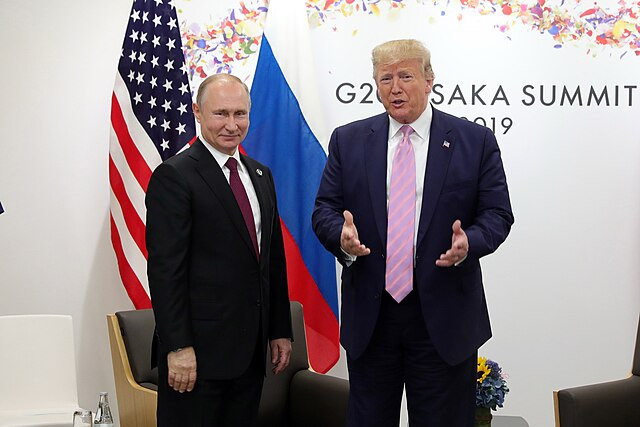President Donald Trump and Russian President Vladimir Putin are preparing to meet in the coming days, as the White House deadline for Russia to agree to a Ukraine ceasefire or face sweeping new sanctions approaches. The bilateral summit was confirmed by top Kremlin aide Yuri Ushakov, who stated Wednesday that "an agreement was essentially reached to hold a bilateral meeting at the highest level in the coming days."
The meeting would mark the first between the two leaders since Russia's 2022 full-scale invasion of Ukraine and follows a three-hour discussion in Moscow between Trump's envoy, Steve Witkoff, and Putin. "My Special Envoy, Steve Witkoff, just had a highly productive meeting with Russian President Vladimir Putin. Great progress was made!" Trump wrote on Truth Social.
Ushakov said the idea for the summit was proposed by the American side and described the talks as "useful" and "constructive." He noted that Washington also floated a potential three-way summit including Ukrainian President Volodymyr Zelenskyy, though Moscow "left this option completely, without comment."
The Kremlin's announcement came ahead of Friday's U.S.-imposed deadline for Russia to halt its military offensive or face new economic penalties. On Tuesday, Trump hinted at further action, telling reporters, "there's a very good prospect" of meeting with both Putin and Zelenskyy to help broker an end to the war. However, he was noncommittal on expectations. "I've been disappointed before, with this one," he said.
The White House is poised to implement secondary sanctions targeting Russian trading partners, a senior administration official said. That includes an executive order signed Wednesday imposing a 25% tariff on Indian imports over its continued purchases of Russian oil. The plan is to starve the war machine, Trump said earlier this week, signaling China could be next in line for penalties.
Kremlin officials have largely dismissed the looming U.S. penalties. Presidential spokesman Dmitry Peskov said Russia had "taken note" but claimed the economy had become "immune" to Western pressure. Putin himself gave only a veiled response, telling reporters, "All disappointments stem from inflated expectations... we need deep conversations, and not in public."
Russia's full-scale invasion of Ukraine began in February 2022, following years of conflict in the Donbas region. Trump has long asserted he could bring the war to a close within 24 hours, citing his relationship with Putin and a tougher leverage strategy.
However, his rhetoric shifted in July after Russia launched new missile attacks on Kyiv. Trump announced a policy enabling U.S. allies to purchase and transfer American weapons to Ukraine. The Netherlands, Sweden, Norway, and Denmark have since committed over $1 billion for new U.S.-made systems.
Ukrainian President Volodymyr Zelenskyy said Wednesday he spoke with Trump after Witkoff's Moscow visit. "It seems that Russia is now more inclined to a ceasefire," Zelenskyy said. "The pressure on them works. But the main thing is that they do not deceive us in the details - neither us nor the U.S."
Zelenskyy added that the Netherlands will send more than $500 million in American missiles and parts for Patriot air defense systems. Ukraine continues to request replenishments amid intensifying Russian strikes.





